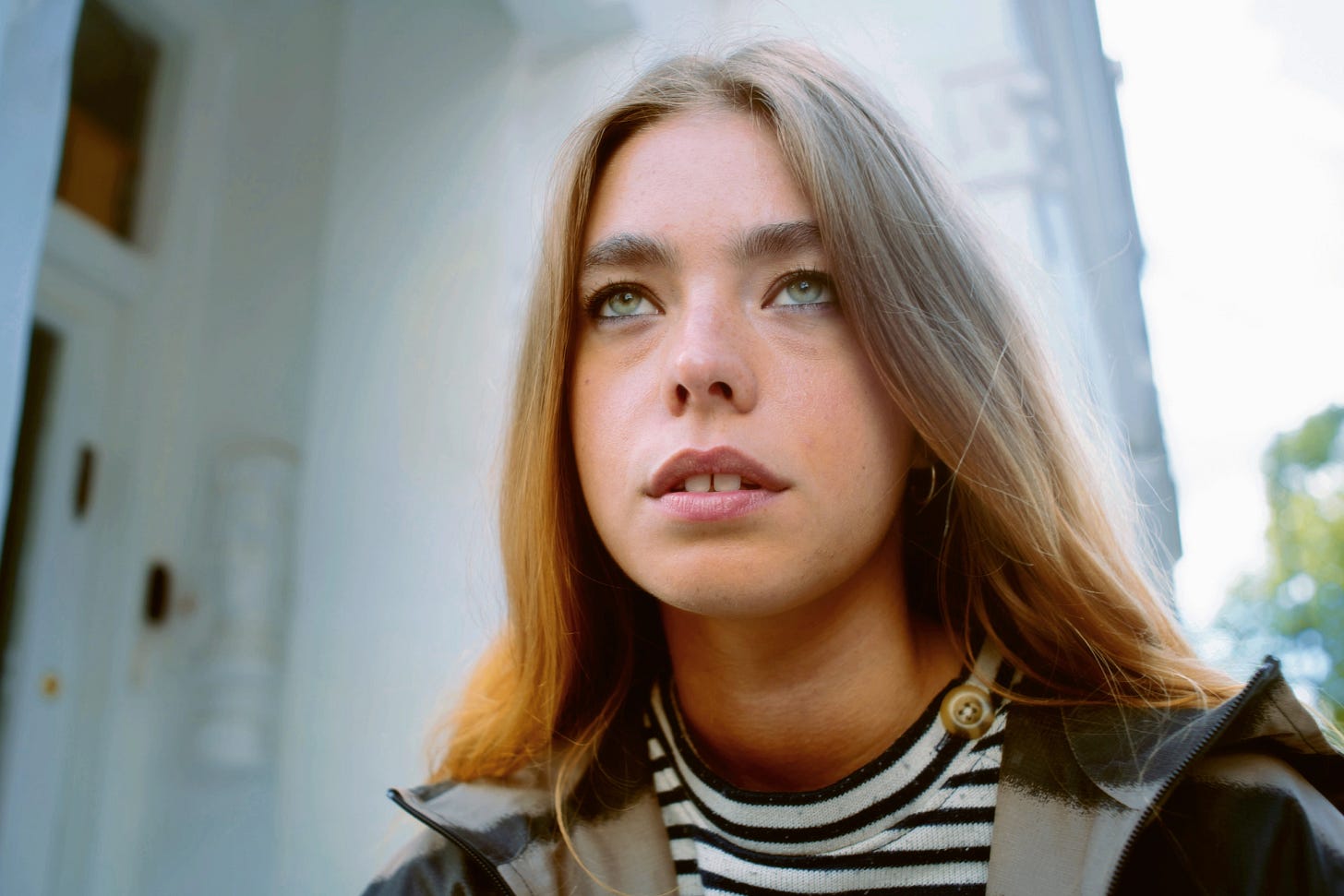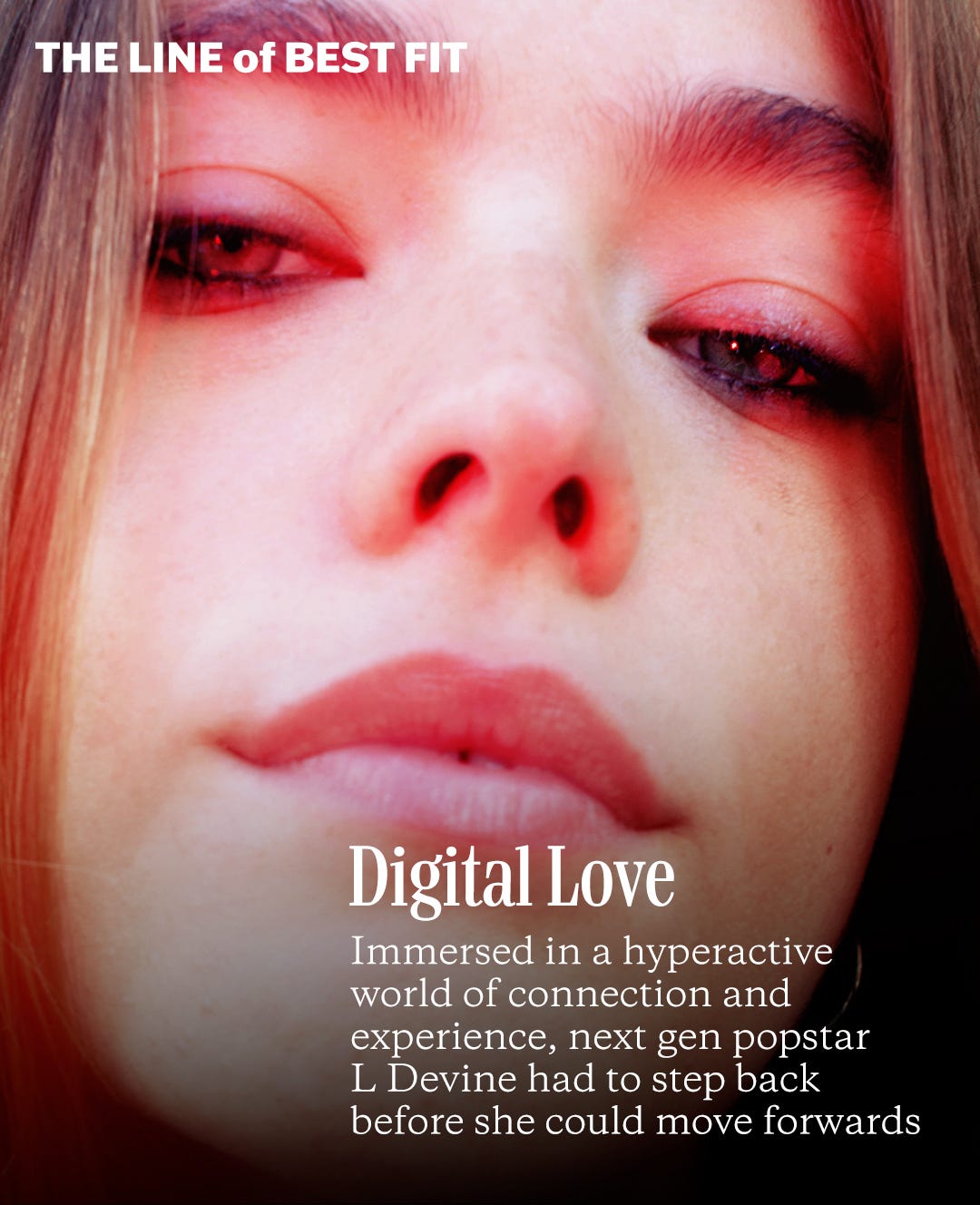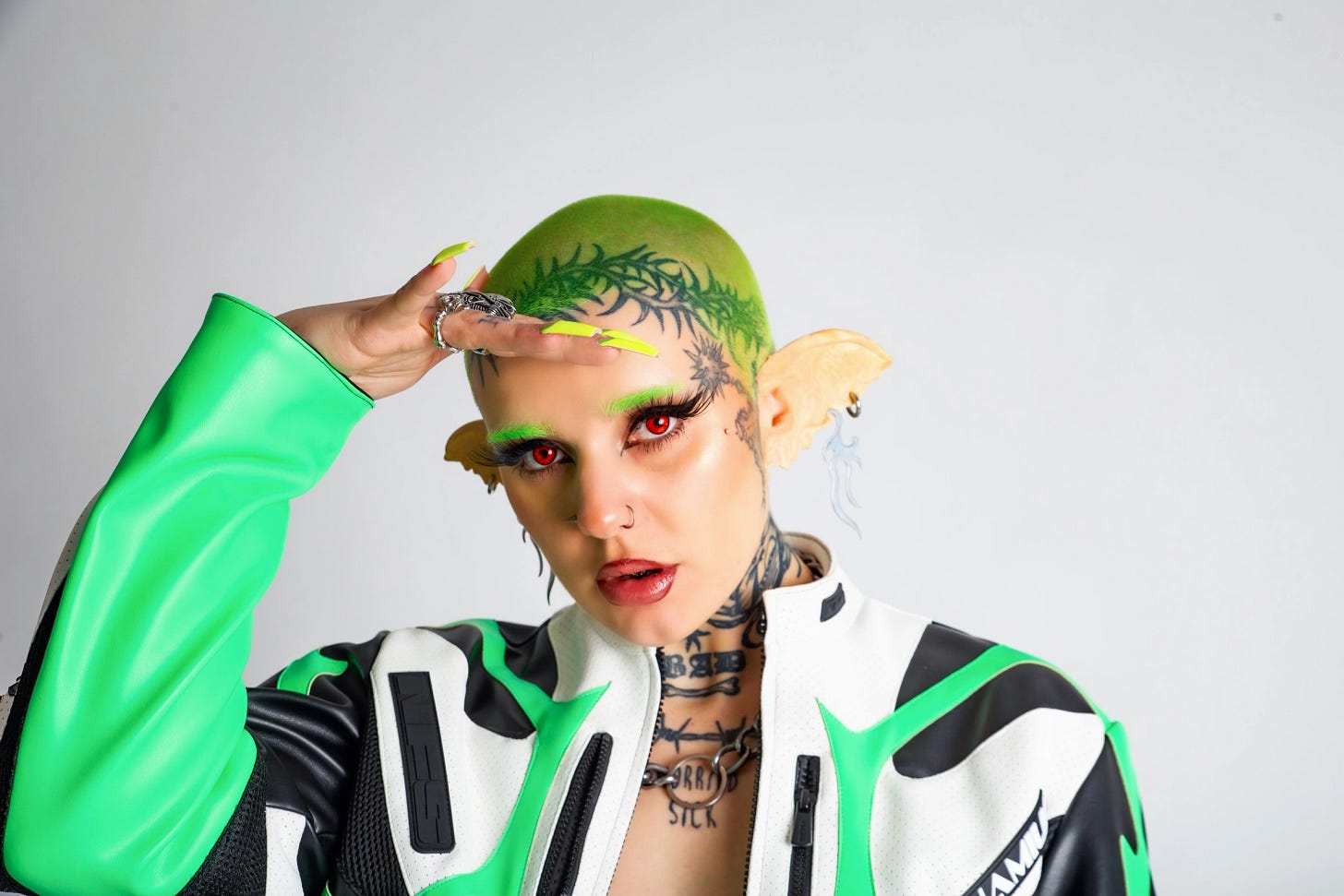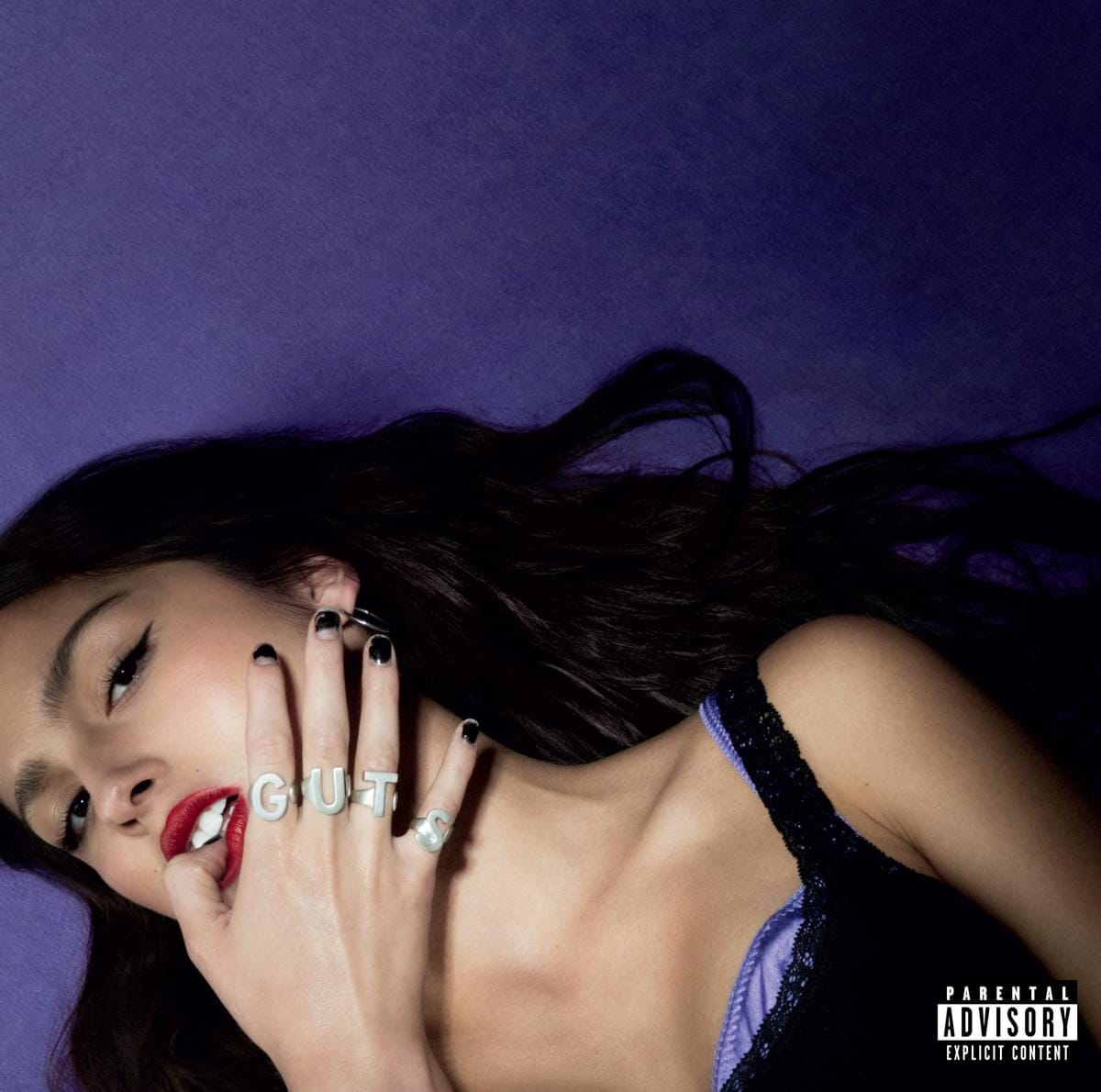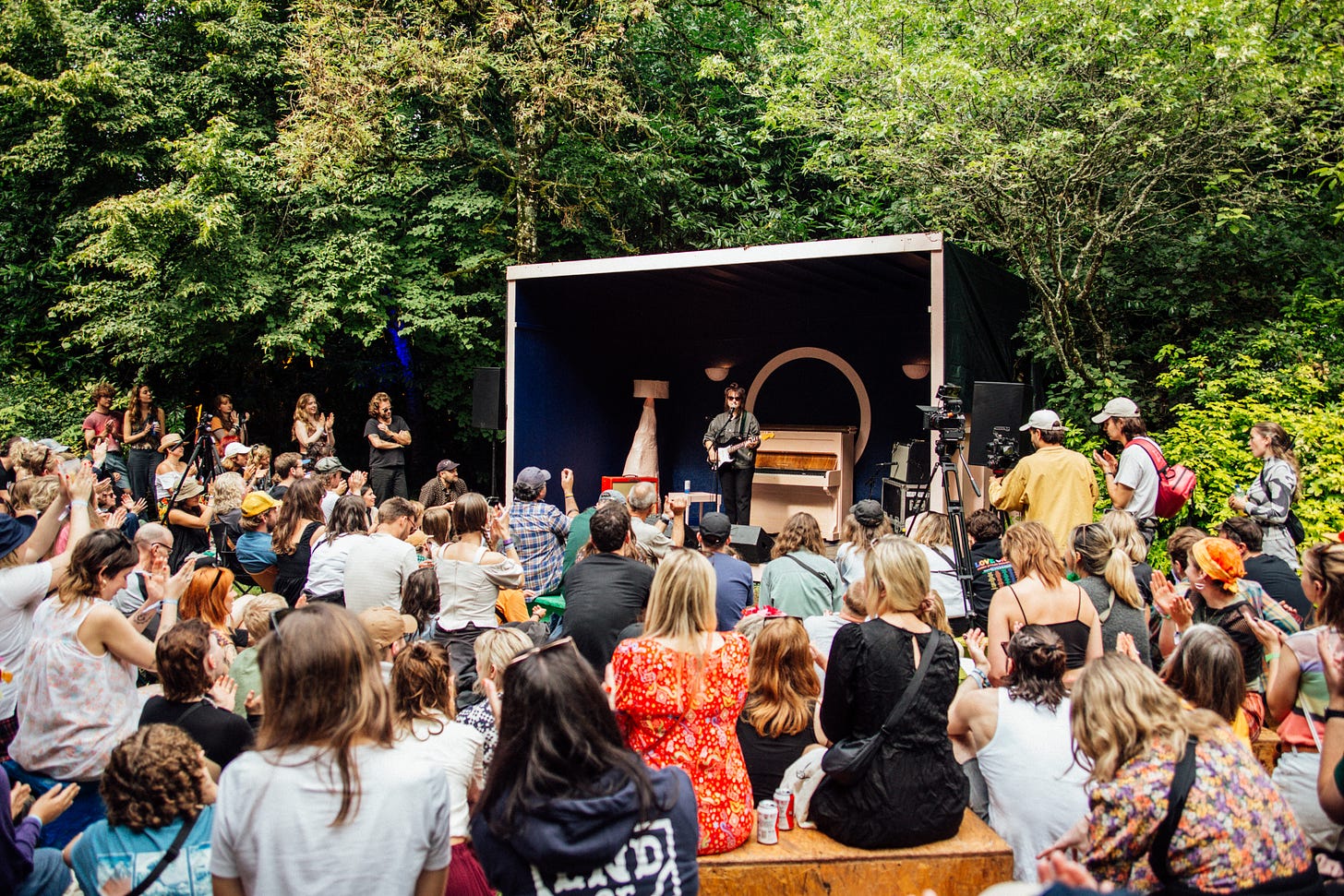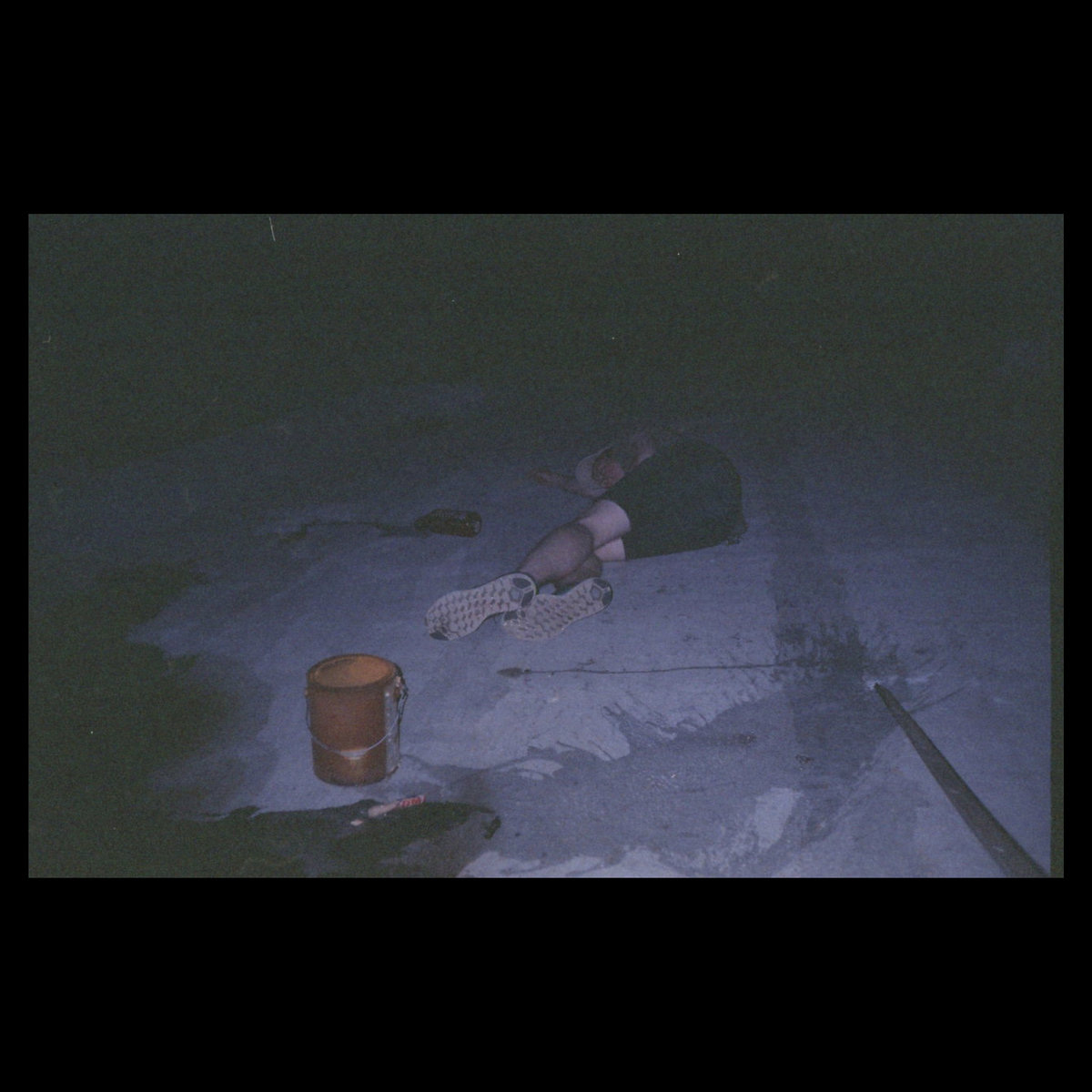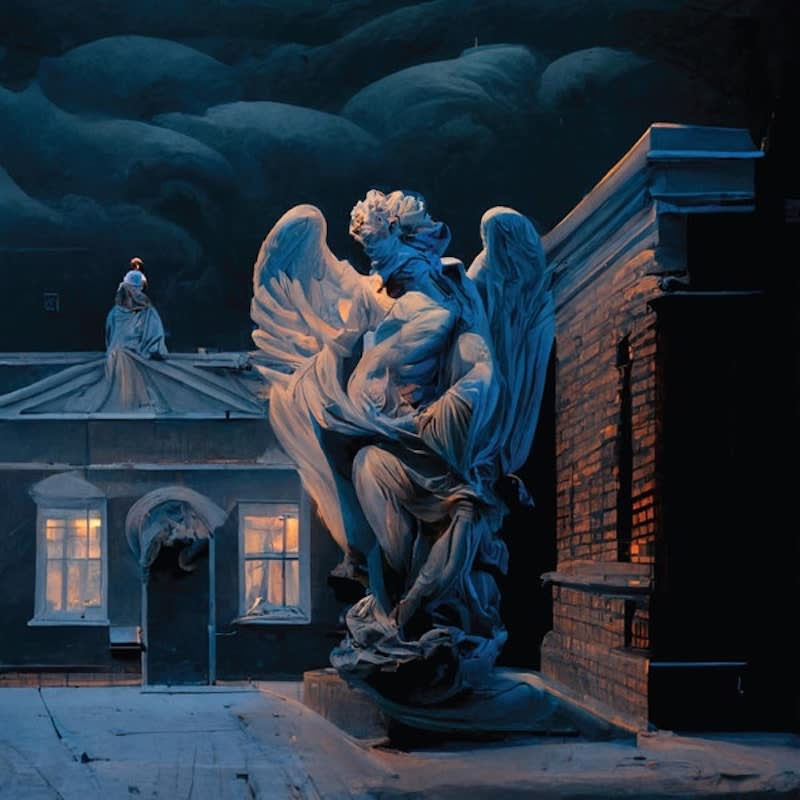Digital Love
After several frantic years in London, constantly releasing, promoting and performing, burgeoning popstar L Devine parted ways with her major label, management and the capital, and moved back North to reconnect with the people who knew her best. That process of self-discovery is what informs and illuminates on her honest and striking debut, Digital Heartifacts, she tells Best Fit for this week’s digital cover.
“I’d been working since I was nineteen and I don’t think I had a chance to really explore my identity,” she explains. “I’ve had to do a lot of inward thinking since then: who actually am I? You’re so sucked into it you start thinking about those things, like the numbers and monthly listeners. Everyone’s heads were so fucked during that pandemic, I was so cloudy.”
While moving North was a massive reality check, once restrictions about Covid began to lift and the pressure eased, Devine rediscovered the value of home. “I just did a lot of thinking and ended up falling back in love with Newcastle and being with my family and just being around people that really know you and have always known you,” she smiles. “It just changed the way I thought about life and myself. London, I love that I can just get lost in it and here, I love that I walk down the street and I know everyone.”
Free from previous constraints and pressures, Devine set about making the record that she wanted to make. Collaborating with producer Julien Flew, she used her new-found space and time to write songs that were honest, both lyrically and sonically. The result is Digital Heartifacts, a narrative-driven, diaristic collection of tracks that eschew her former pristine pop coating for grit and raw, organic production. “I made the album when I didn’t have a manager, I didn’t have a label. Just me and my friend Julien making music without any opinions,” she says. “It’s so crazy how much I grew and changed during that period, and found out what I actually like and want to do.”
The luminous rage of ZAND
It’s been five years since alt-icon ZAND first introduced their brash new moniker and fast-garnered a slew of festival appearances, provocative cover stories, and even an unlikely delve into the world of politics. Whilst the careful curation of an on–stage identity is as old as the art of performance itself, ZAND is firmly part of the digital–first generation. No longer are they subverting the norm by blurring the boundaries between the internet and reality; the boundaries quite simply no longer exist. Acronyms like DTF and references to “posting [their] arse on Instagram” crop up across their tracks, and their trademark look – a slime green-cut and a frequent accompaniment of elf ears – feels distinctly playful and otherworldly, reminiscent of early RPG customisation.
The ability to carefully craft an identity has become so deeply ingrained in everyday lives that perhaps many have lost touch with its limitless potential, favouring the pursuit of an illusionary authenticity – but not ZAND. “You are just constantly performing a character so why not put on a show,” they emphasise, “whatever you do creatively is just posturing, so I find it fun to just let go and go into this really unhinged character on stage.” It’s not a particularly outlandish or revolutionary claim, but it does feel somewhat refreshing to hear an artist embrace it so openly.
For ZAND, it seems life and performance are a simple case of switching registers; the extra bravado added to ensure they remain in total creative control. There’s no particular tension about where the act stops and ZAND begins, they’re just a performer, constantly in motion. Whilst a testament to their talent, it’s a notion that runs deep beyond artistry, informed by their experiences growing up in a neurotypical society. “I’m autistic so I feel like a big aspect is just automatic masking… that performance is just already built within you as a neurodivergent person in society. I guess it just comes as second nature… I just know how to do it in a way.”
Alice Browne
Olivia Rodrigo promises resuscitation for a dying pop ecosystem with GUTS
As great as Olivia' Rodrigo’s debut SOUR was, it feels in hindsight like it was only a blueprint. Released today, her sophomore effort GUTS takes the best things about her past work – the emotional potency, the confessional lyricism, the pivots into alt-rock – and cranks it up. The pop-rock tracks on GUTS are stronger, more raw, more unfiltered; the ballads are more ambitious and well-written. The result is a raw, confessional album more interested in telling Rodrigo’s story than conforming to the standards of popular music.
Rodrigo – who was born in the early 2000s and grew up listening to her parents’ alt-rock – takes frequent musical inspiration from the turn-of-the-decade pop punk and garage rock revival. But Rodrigo takes her influences and spins them into something entirely new, often reflecting on the complexities of being a young woman thrust instantaneously into the limelight. Opener “all-american bitch” begins with pleasant fingerpicked guitar before launching into fuzzy electric guitars, all paired with a list of one-liner stereotypes about how women in the public sphere are expected to act: letting crude jokes slip by without a fight, empathetic but not enough to ever become unpleasant, knowing your age and acting like it. It’s a powerful piece of social commentary with an instrumental punch to back it up. But not all the songs have – nor do they need – that much meaning. “ballad of a homeschooled girl” reads less like a well-thought-out political critique and more like the stream-of-consciousness journal entry written the morning after after a particularly embarrassing party, replete with raw power chords, immaculate tempo changes and half-rapped verses.
But not all of the album is forceful pop-rock – far from it. About half of the tracks are slower, and more reflective, but just as angsty. And, like the rest of GUTS, they aspire to much more than her previous work; they’re ambitious and multifaceted. “lacy” is an airy, tender-yet-cutting acoustic piece about envying someone else’s perceived perfection; the plucked guitars and soaring vocals make the song feel more intimate than anything she’s released before. “making the bed” starts as a standard piece of melancholy pop, but is overtaken by synth drones and washes of soft guitars more reminiscent of dream pop. Lead single “vampire” doesn’t take long to evolve from a subtle singer-songwriter ballad into a propulsive piano-rock tune with synth stabs and a surprisingly dynamic rhythm section.
The main pitfall of Rodrigo’s album isn’t her, or her vocals, or her production, or anything related to her music – it’s that listening to GUTS front-to-back feels like a playlist on shuffle; like two half-albums spliced together. Rodrigo lurches through emotions without warning: she speeds back and forth between impassioned ballads and driving guitar tunes, between teasing sarcasm and devastating heartbreak. On the other hand, though, GUTS wouldn’t feel complete without both halves – even though I tended to enjoy the rock tunes more, the album would feel like it was missing something if it didn’t take the time to slow down and reflect on the same themes with a more personal, pensive tone.
No matter how it’s assembled, GUTS promises resuscitation for a dying pop ecosystem. 2023 has been one of the slowest years in recent memory for big pop-music moments: releases so big that they're events on their own. In the United States, country music rules the charts; even in the UK, where the Top 40 is still dominated by pop music, few albums have caught a foothold at the top for more than a couple of weeks. Even in September, GUTS has a veritable claim on being one of mainstream pop music’s first massive releases of the year – but, evidently, Rodrigo has bigger aspirations than just being big. GUTS doesn’t sound like anything any major pop star has released in decades – or ever, to an extent. And that’s a good thing.
Matthew Kim
Best Fit’s secret sessions at End of the Road Festival
At the start of September every year, Best Fit decamps to Dorset for the End of the Road Festival to stage our Secret Sessions. For more than a decade, we’ve brought together iconic artists from across the festival line-up for a series of short sets, collaborations and conversations. If you’ve ever been to the festival, you might have caught Patti Smith reading from Just Kids, John Cale from The Velvet Underground chatting to Ezra Furman, Laura Marling and Marika Hackman covering The Foo Fighters or even a now legendary performance by Frightened Rabbit. More than 100 artists have taken part in the secret sessions - from Big Thief, Wilco and Kurt Vile to Lucy Dacus, Soccer Mommy and Squid.
This year was our best to date, with Angel Olsen, Samia, Caitlin Rose and Nina Nastasia delivering some spellbinding moments with exclusive covers of their favourite songs alongside stripped back versions of their own work. Sam Herring dropped in for a Q&A and ended up having his picture taken with almost everyone who listened to his hilarious tales of life in Future Islands, and Best Fit favourite Kara Jackson made a bunch of new fans with a performance of Karen Dalton’s “Right, Wrong or Ready”.
This week we dropped videos from two of the weekend’s best performances - Angel Olsen and Samia – and you can explore our huge archive of performances over on YouTube, dating back to our very first secret session with the then Rough Trade-signed Dylan LeBlanc back in 2010 ( and he has a new record Coyote due out on 20 October via ATO Records too that you should check out!)
Tickets for next year’s End of the Road Festival are on sale now
Something Old, Something New
Every week, one of Best Fit's writers or editors share their recommendations of two records they love - one from the past, one from the present. This week, Best Fit writer Callum Foulds on Pearlty by Knifeplay (2019) and Lords of the Shithouse by Draag Me (2023).
Knifeplay’s Pearlty remains one of my favourite albums from 2019. I came across it scrolling through a friend’s Bandcamp purchases – a friend who was leaps and bounds cooler than myself, so I wanted to see if their music taste would inject some of their aloofness into me.
I'm not sure this worked. But I did discover a great band in the process – Knifeplay. Slowdive were immediate reference points to me for Pearlty: the song “Tears” resembles the immediate beauty of “When the Sun Hits” – it gently swells before splitting open into a massive expanse of spinning synths and reverb soaked guitars. Lead singer TJ Strohmer has the perfect delicate lilt of a shoegaze voice barely reaching out. There is a gothic sensibility that permeates this album. It’s sprawling in the way Disintegration by The Cure is – at times buzzy and almost apocalyptic, often containing the bittersweet romance that gothic guitar-led bands are so good at capturing. What I love most about this album is what it makes me feel. It is the perfect record for walking around your city as the night lays down. It sounds like the blood red glow of stop lights, the heavy scent of car fumes on a warm evening, the feeling of waking in the early hours and fading back into sleep as the sun rises. For a debut it’s a remarkable feat, and I cannot wait to continue to listen to this record for years to come.
Draag me began as the solo project of Spirit of the Beehive’s Zack Schwartz. Apart from having probably the best album title of the year, I would contest for the albums placement on any end of year list.
Lord of the shithouse attempts – and succeeds, in my opinion – in the conjuration of total anxiety fuelled chaos. “cut the check” is a highlight – sounding like a nursery rhyme from the most unhinged kids TV show. What I love about this album is how it relentlessly pieces together the most disparate sounds with the most disorientating beats and synths. There is a certain comfort within the collage of songs on this album. Where Spirit of the Beehive drove their songs forward with chugging riffs, draag me expands on the moments between tempo or mood shifts. It is a sensory overload in the best way. There is a sense of pop futurism that is utterly addictive, tethered to unanchored soundscapes that feel as if at any moment they might disintegrate. My favourite cut is “death cult” purely for its blending of DragonForce-style guitars and M.I.A style DIY beats.
This is music that, at times, is unpleasant to listen to, but in the most endearing way. The varying sounds and textures scratch a very specific part of my brain that nothing else is able to relieve. I fell in love with this album for it’s sheer absurdity – how it throws everything at you like a hellish fairground ride, but leaves you feeling calm and empty – flushed out and reset.
Listen to the week in new music by following our Discovery playlist
Dropping at midnight every Thursday, follow our 20-track playlist for a taste of the best new music from the most exciting breaking artists.
These are the songs our editors and writers have on repeat right now, taken from the hundreds of tracks released in the last seven days. Leading the selection this week are amazing cuts from George Riley, Nell Mescal, Ellie Bleach, Maria Escarmiento, WTRGRL and coverstar Re Teu.



